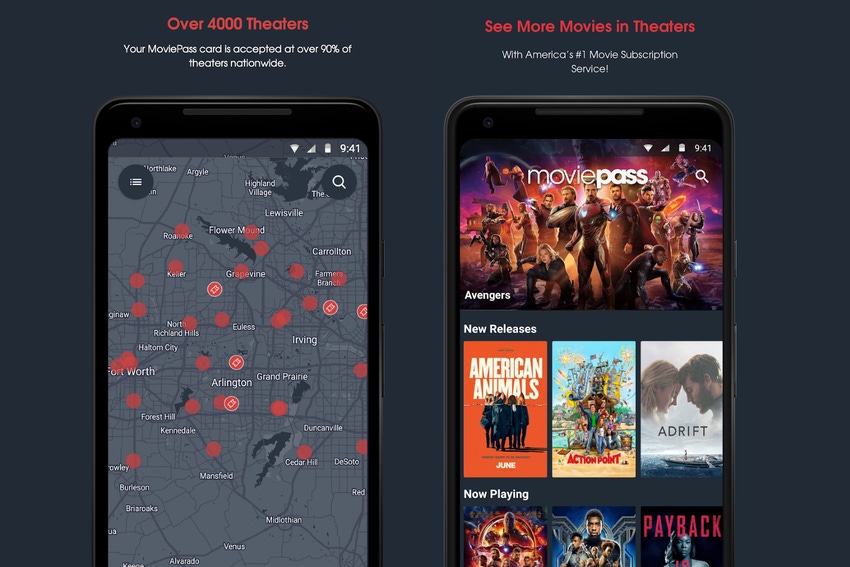MoviePass is a classic example of how a good idea doesn’t always make for a good business.
October 25, 2019

On Sept. 14, MoviePass closed down. After years of last-minute pushes to raise capital, the monthly subscription service that let customers see unlimited movies in theaters decided it couldn't sustain itself.
To most Silicon Valley observers, the demise of the organization wasn't a surprise. The writing was on the wall for years. MoviePass needed an influx of $6 million in emergency funds just last year. Anyone eyeing the market would tell you MoviePass wasn't sustainable.
Of course, the massive losses the company incurred was always part of the business model. Much like Google or Facebook, MoviePass backers, such as Helios and Matheson Analytics, were banking on the volume of subscribers and sales of their data as a long-tern business plan. The idea was to collect viewing-habit data from moviegoers that would hypothetically be sold to film studios, distributors and theater chains. In the short term, MoviePass also wanted to cut discounted bulk ticket sale deals with theater chains so it could reduce margins.
In hindsight, the company failed on both accounts because it repeatedly failed to understand how the movie business works.
A Whole Lot of Data Can Say Nothing
The problem with MoviePass data was simply no one knew what to do with that information. Studios already have test screeners to understand what may or may not work about a film well before it hits multiplexes, and marketing budgets are allocated well before a movie hits theaters.
Even if MoviePass data could provide value, the production cycle of films is built far in advance, meaning it would be hard to do anything with viewership data once a picture is ready to be released. MoviePass tried some things to make the data more relevant. Yet, even factoring in survey data, customer insights were not as valuable to players high up in the movie-making ecosystem.
Why Pay Someone Else for Something You Can Do?
On the bulk ticket sales idea, movie theater chains realized rather quickly that they didn't need MoviePass to run a subscription to their theaters. They could make a more financially stable deal by creating their own monthly service plan and having MoviePass pay full price for each ticket it sells.
In a conference call earlier this year, AMC–which created a similar service called Stubs A-List–reported that MoviePass was paying the chain an average of $12.02 per ticket, well above its average national ticket price of $9.78. Theater chains’ decision to get into the subscription business was the final nail in MoviePass' coffin. AMC has Stubs A-List, Cinemark has Movie Club and even specialty theater chain Alamo Drafthouse has a Season Pass. Collectively, these services work as a sort of rewards program for frequent moviegoers. It allows customers to save some money on individual ticket sales, and in return, they go to the movies a little bit more often.
Making Money Where it Matters
Theater-run subscription models make sense for mass chains because the actual price of a ticket is only a part of a broader ecosystem of revenue. According to a Stanford study, concessions make up about 40 percent of theaters’ gross profits. Concessions are also a cost that theaters don't need to split with movie studios. Unlike ticket sales, popcorn and soda are 100 percent owned by theaters, which decide the price of concessions to manage their margins.
The value of concessions reinforces the basic concept that a movie theater is event entertainment. You pay to experience a group activity outside of the confines of your home. When put into that context, subscription services, like the one created by MoviePass, provide real value to the movie industry.
MoviePass Was onto Something
Maybe MoviePass was onto something, even if it wasn’t the right company to pull it off.
As people go to the movie theater less often, the industry needed a disruptor to figure out something new. According to a Comscore report covered by Variety, movie ticket sales are nearly 10 percent lower than last year’s sales. That is in spite of the fact that there has been a demonstrated desire from consumers willing to go to the cinema for big event movies such as 2019's Avengers: Endgame.
Perhaps if you have a subscription service that gets people to see the "event pictures," they'll also go to the movies again to see the smaller films just to make up that $20 per month they spend, all the while, spending the real money on concessions and other side offerings that make the experience truly enjoyable.
So while MoviePass may be dead, it's business model certainly lives on.
Read more about:
amcAbout the Author(s)
You May Also Like








